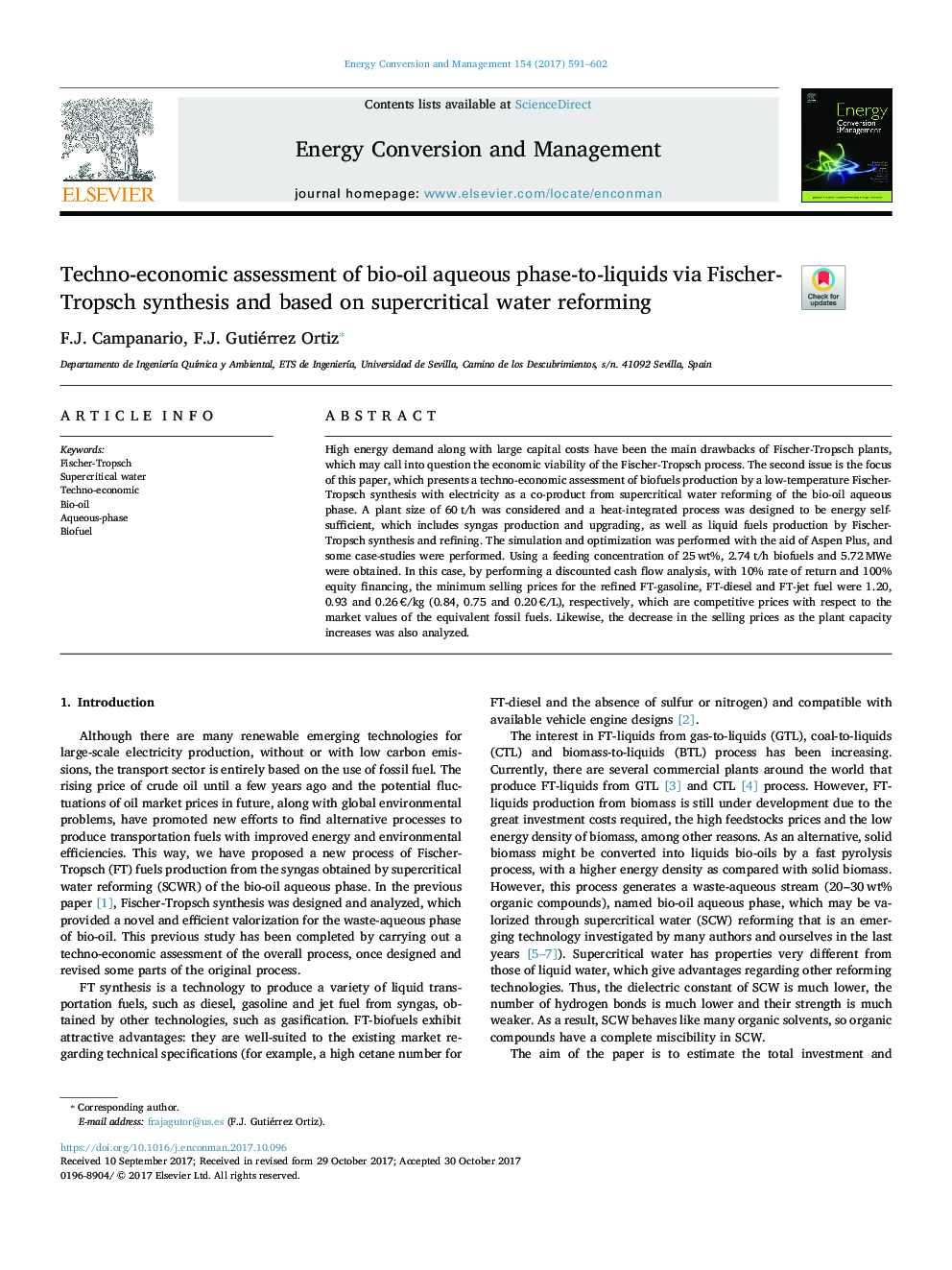| Article ID | Journal | Published Year | Pages | File Type |
|---|---|---|---|---|
| 7159743 | Energy Conversion and Management | 2017 | 12 Pages |
Abstract
High energy demand along with large capital costs have been the main drawbacks of Fischer-Tropsch plants, which may call into question the economic viability of the Fischer-Tropsch process. The second issue is the focus of this paper, which presents a techno-economic assessment of biofuels production by a low-temperature Fischer-Tropsch synthesis with electricity as a co-product from supercritical water reforming of the bio-oil aqueous phase. A plant size of 60â¯t/h was considered and a heat-integrated process was designed to be energy self-sufficient, which includes syngas production and upgrading, as well as liquid fuels production by Fischer-Tropsch synthesis and refining. The simulation and optimization was performed with the aid of Aspen Plus, and some case-studies were performed. Using a feeding concentration of 25â¯wt%, 2.74â¯t/h biofuels and 5.72â¯MWe were obtained. In this case, by performing a discounted cash flow analysis, with 10% rate of return and 100% equity financing, the minimum selling prices for the refined FT-gasoline, FT-diesel and FT-jet fuel were 1.20, 0.93 and 0.26â¯â¬/kg (0.84, 0.75 and 0.20â¯â¬/L), respectively, which are competitive prices with respect to the market values of the equivalent fossil fuels. Likewise, the decrease in the selling prices as the plant capacity increases was also analyzed.
Related Topics
Physical Sciences and Engineering
Energy
Energy (General)
Authors
F.J. Campanario, F.J. Gutiérrez Ortiz,
